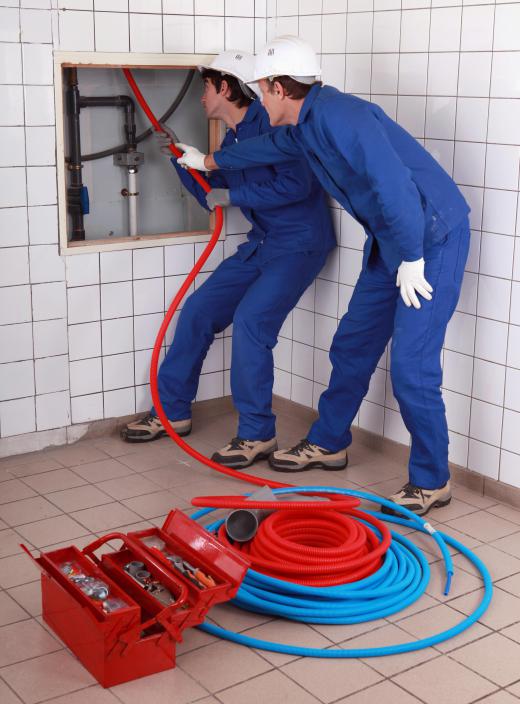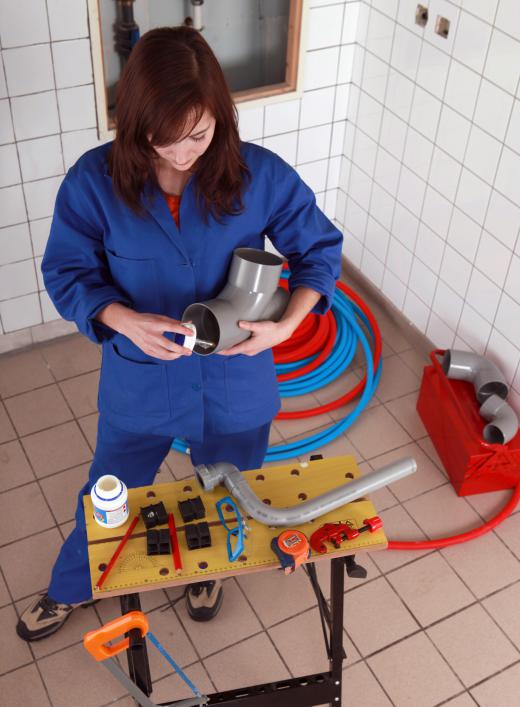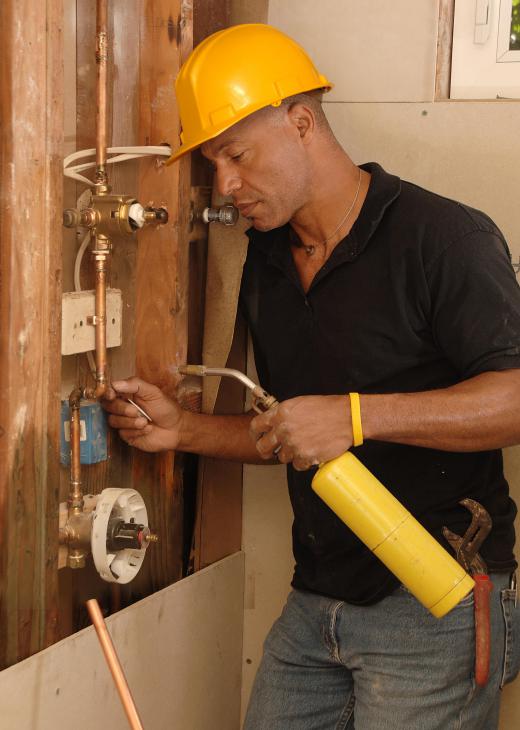The difference between plumbers and pipefitters is generally one of scale and skill. While both work with pipes and valves made of various materials, plumbers generally are engaged in residential or light industrial piping systems for potable water, waste disposal, and heating/cooling. Pipefitters, also referred to as steamfitters, work primarily in industrial, commercial, or military applications.
Skills required for pipefitter jobs are broader and often more demanding than those for a plumber. A journeyman plumber is a skilled professional trained to read blueprints and work with materials such as PVC, copper, and galvanized pipe, and to form and connect these pipes using threads, glue, and solder. In addition to building a connecting network of pipe, a plumber installs fixtures such as sinks, toilets, taps, and faucets.

A journeyman pipefitter uses some of these same skills and materials in the course of his work, but he also works with special metals and alloys capable of handling very high pressure. Pipefitting materials such as stainless steel, high-carbon steel and other alloys are often used in working with hazardous materials such as live steam. Connecting high-pressure pipes of metal alloys calls for a high degree of skill in specialized welding as part of a pipefitter job.

A wide variety of pipefitter careers are available in industries such as oil drilling and refining, navy and merchant marine, and manufacturing. In the petroleum industry, pipefitters build pipe systems to transport crude oil across large distances from oil fields to refineries and petroleum products from refineries to metropolitan distribution centers. In navy and merchant marine applications, pipefitter jobs include installation and repair of fuel, hydraulic, and ventilation systems.

Manufacturing often has need of both plumbers and pipefitters. Plumbers install and maintain the necessary water systems for drinking, washing, and waste disposal, as well as sprinklers for cooling and fire control. Pipefitters install and maintain high-pressure pipe-and-valve distribution systems that might handle a variety of material, including live steam, solvents, paint, or food processing ingredients.

In the United States, licensing for plumbers and pipefitters often varies from state to state. It is not unusual for plumbers and pipefitters to have dual certification because of the overlap of skills and apprentice training. Many industrial firms require that a person have formal certification and experience and pass a skills test in welding before an offer of employment is made. With the increase in industrial globalization, pipefitter jobs are regularly available around the world in oil fields, power plants, pipelines, and ship building.
